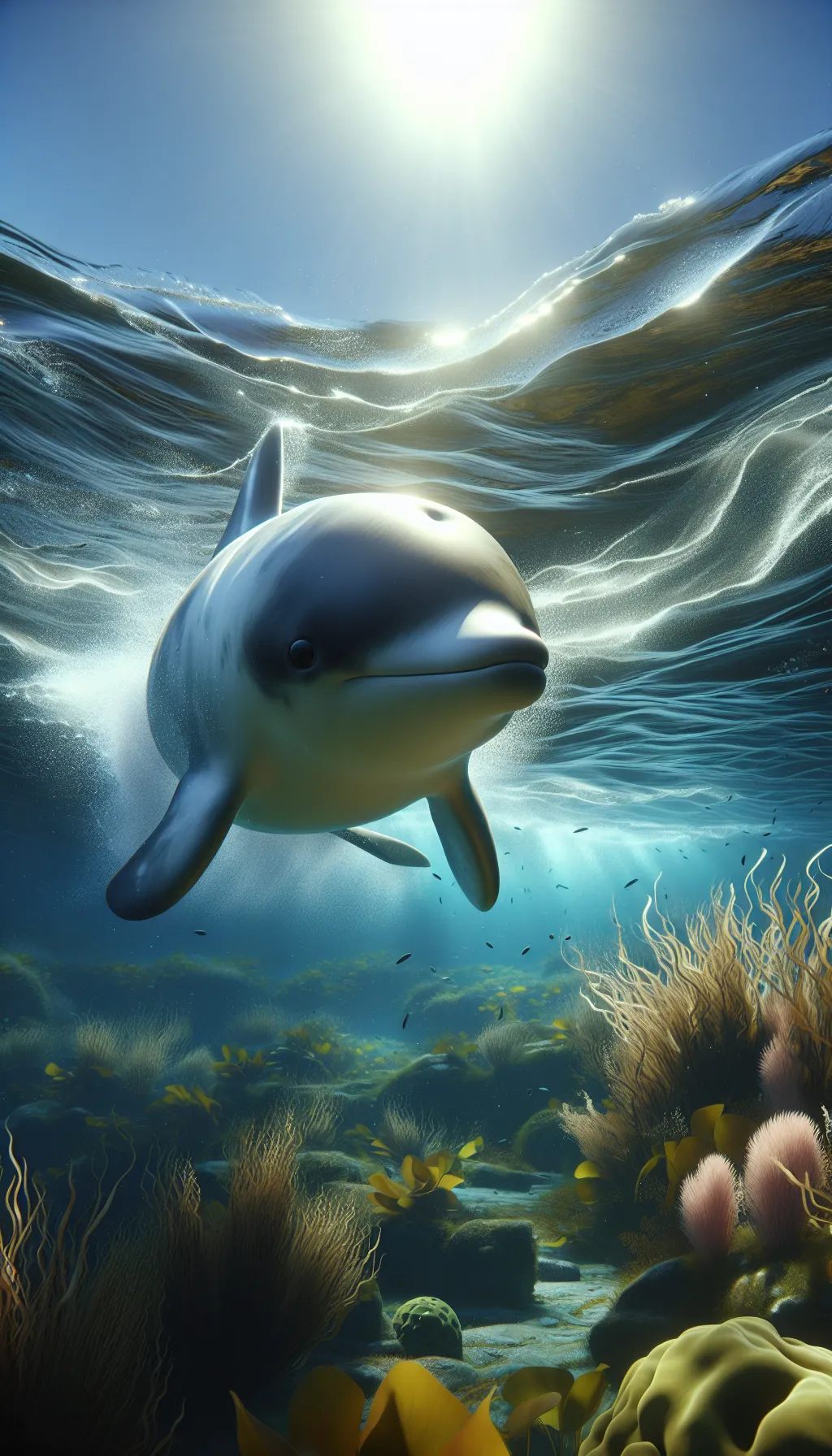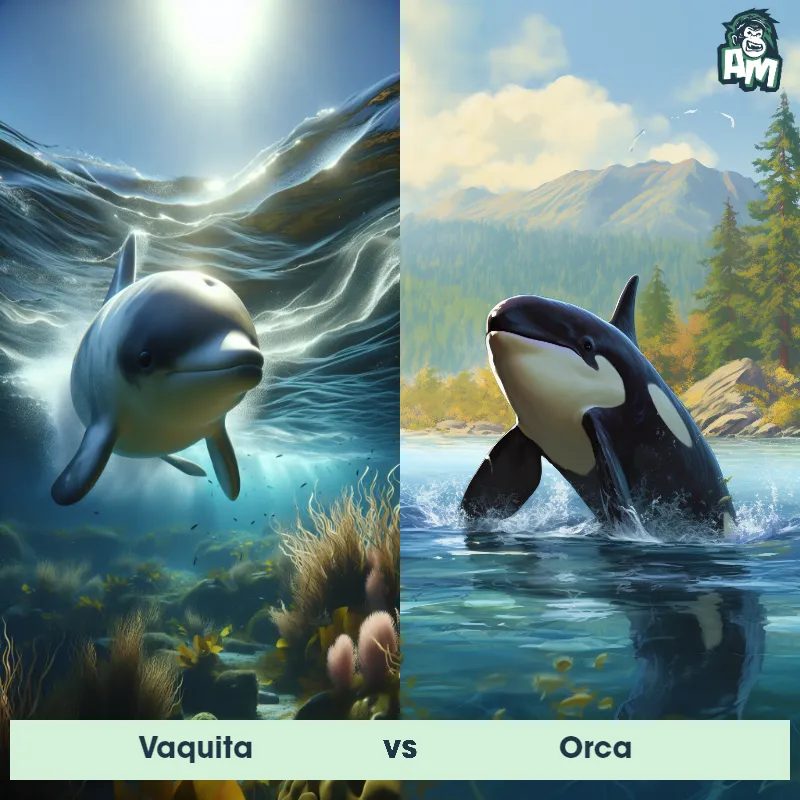The Vaquita
The Vaquita, also known as the Gulf of California harbor porpoise, is the world's smallest cetacean species, measuring around 4.6 to 5 feet in length and weighing approximately 120 pounds. They have a rounded body with a dark gray color on their upper parts and a lighter gray shade on their ventral side. Vaquitas have a unique black ring around their eyes, dark blotches on their lips, and short, robust flippers. They are known for their shy and elusive behavior, often avoiding boats and other human activity. Sadly, they are critically endangered, with an estimated population of fewer than 10 individuals remaining.

| Vaquita | |
|---|---|
| Size | About 5 feet (1.5 meters) |
| Weight | Up to 120 pounds (55 kilograms) |
| Speed | 5.5mph (8.8km/h) |
| Key Strength | Unknown |
| Biggest Weakness | Vulnerable to entanglement in fishing gear |
| Scientific Name | Phocoena sinus |
| Family | Phocoenidae |
| Habitat | Shallow, murky waters of the northern Gulf of California |
| Geography | Confined to a small area in the northern Gulf of California, Mexico |
| Diet | Fish, squid, and crustaceans |
| Lifespan | 12 years - 15 years |

The Vaquita
The Vaquita, also known as the Gulf of California harbor porpoise, is the world's smallest cetacean species, measuring around 4.6 to 5 feet in length and weighing approximately 120 pounds. They have a rounded body with a dark gray color on their upper parts and a lighter gray shade on their ventral side. Vaquitas have a unique black ring around their eyes, dark blotches on their lips, and short, robust flippers. They are known for their shy and elusive behavior, often avoiding boats and other human activity. Sadly, they are critically endangered, with an estimated population of fewer than 10 individuals remaining.
Fun Fact: The Vaquita is nicknamed "the panda of the sea" due to its distinctive black circles around its eyes, which resemble the markings of a giant panda.
| Vaquita | |
|---|---|
| Size | About 5 feet (1.5 meters) |
| Weight | Up to 120 pounds (55 kilograms) |
| Speed | 5.5mph (8.8km/h) |
| Key Strength | Unknown |
| Biggest Weakness | Vulnerable to entanglement in fishing gear |
| Scientific Name | Phocoena sinus |
| Family | Phocoenidae |
| Habitat | Shallow, murky waters of the northern Gulf of California |
| Geography | Confined to a small area in the northern Gulf of California, Mexico |
| Diet | Fish, squid, and crustaceans |
| Lifespan | 12 years - 15 years |
Vaquita Matchups
We use AI to simulate matchups between the Vaquita and other animals. Our simulation considers size, strength, and natural predatory behaviors to determine the most likely outcome.

Can't find the Matchup you want?
Create Your Own MatchupVaquita: Diet, Predators, Aggression, and Defensive Behaviors
What do Vaquitas eat?
Vaquitas primarily feed on small fish, shrimp, and squid. They are known to dive up to 150 meters deep to forage for their meals.
Do Vaquitas have any predators?
Adult Vaquitas do not have natural predators, as they are apex predators in their habitat. However, calves may be at risk from larger predators such as sharks or orcas.
Are Vaquitas aggressive?
Vaquitas are not known to be aggressive towards humans or other animals. They are typically shy and elusive creatures, avoiding confrontation whenever possible.
Do Vaquitas fight?
Vaquitas are not known to fight amongst themselves. They are solitary animals that generally avoid interactions with other Vaquitas, except during mating season.
How do Vaquitas defend themselves?
Vaquitas have been known to avoid threats by quickly swimming away or diving to deeper waters where predators may have a harder time reaching them. Their coloration also helps them blend in with their surroundings, providing some camouflage.
What is their biggest weakness in a fight?
Due to their small size and relatively docile nature, Vaquitas may struggle in a physical confrontation with larger, more aggressive predators. Their best defense is to rely on their speed and agility to evade potential threats.
Fun Fact: Vaquitas solely inhabit the northern part of the Gulf of California, making them one of the most restricted cetacean species in the world in terms of habitat range.
Fun Fact: Vaquitas are renowned for being one of the most vulnerable marine mammals, as they often fall victim to accidental entanglement in fishing nets, particularly gillnets, leading to catastrophic declines in their population.











